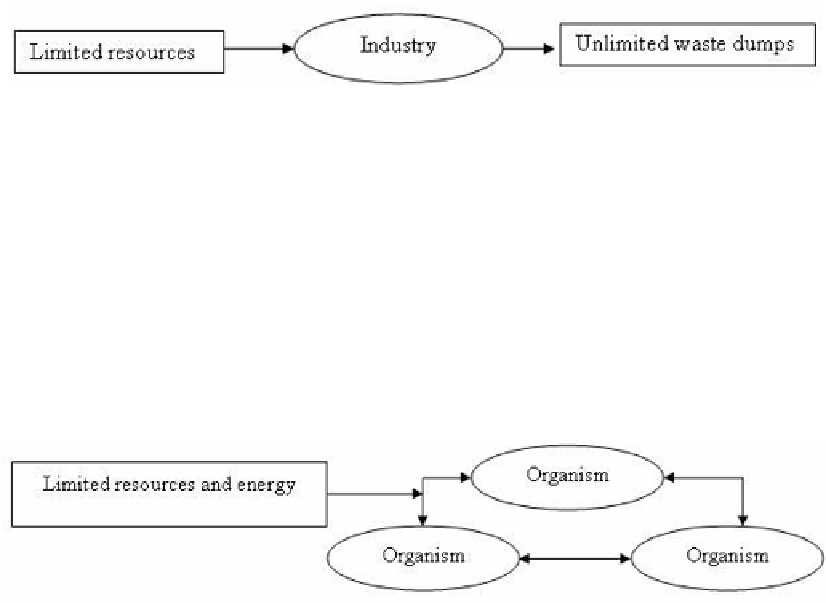Environmental Engineering Reference
In-Depth Information
1.2. Principles of Industrial Ecology
Eco-Industrial Parks take up the principles developed by industrial ecology, which is the
study of material and energy flows, with the aim to reduce significantly resource use and
pollution. Indeed it proposes to apply to industrial systems and to their transformation-
production cycles the same rules and principles governing the functioning of non-human
biological systems that are the ecosystems, characterised by symbiotic relationships and by
the absence of the idea of waste: each waste product is put back into the system, to produce
energy or as a raw material, in order to start a process essential to maintain a global balance.
According to Allenby's scheme [4], traditional industry follows a linear process: the
consumption of energy and materials to produce goods and services generates a significant
amount of waste (Figure 2). Such a system could operate in a sustainable manner only if the
resources fed and the space to dispose of the waste are unlimited.
Figure 2. Traditional industry.
An ecological system, by contrast, is characterised by the right combination between
dynamic balance and closed loop, Figure 3. In a dynamic balance, energy and waste are
constantly recycled and reused by other organisms and processes within the system. In a
perfect closed-loop system, only solar energy (or other renewable energy sources) should
come from the outside, while all by-products should be constantly reused or recycled.
Nevertheless, a total cycle closure cannot be achieved at the level of eco-districts, because at
least the final products have to be released outside the system. This model brings about also
the mutual dependence between the various parts of the system, along with problems and
advantages connected to it.
Figure 3. Ecological system.
Figure 4. Eco-industrial parks.



